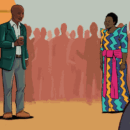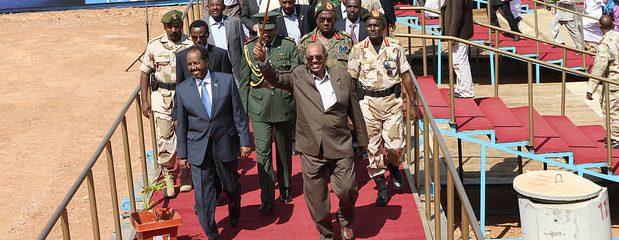Sudan’s Ambiguous Anniversary
Sudan’s independence, fifty years ago today, was not a unifying moment in the nation’s history. The achievement of independence meant very different things to different constituencies””for some it was a prelude to an anticipated union with Egypt, to others a resurrection of the “˜first independence’ of the Mahdiyya, to others the birth of a modern secular nation state””and for many southerners, there was nothing to celebrate at all, given that the new country was born with a mutiny already under way and on the basis of a dishonoured promise of a federation. In fact, the parliamentary vote that brought about independence was a tactical manoeuvre by a crisis-ridden governing coalition, which collapsed soon afterwards.
For the last fifty four years, Sudan has maintained that same spirit of incompatible visions, tactical compromises and broken promises. What has unified the Sudanese people is not a permanent constitution or a common national project, but an unending dialogue, a vibrant national discussion about what Sudan should be. The tragedy is that this debate has been too often conducted with intolerance and violence. But the Sudanese have also shown a remarkable capacity for reflection, reinvention and civil debate about their collective identity.
As the country enters the final year of the CPA Interim Period, it may in fact be entering its final year as the nation that we have known. In just 53 weeks’ time, the southerners are due to vote in a referendum which will probably bring an end to Sudan as a unified country. The year 2010 may be the last year of Sudan. At present, it seems as though the ending of Sudan will occur with the same ambiguity and turbulence as its birth. Whatever happens during 2010 and 2011, the dialogue about Sudanese identity will not be resolved, it will merely be reconfigured. Sudanese will remain Sudanese whether they live in one country, two countries or many countries. Let us hope that this debate, inevitably unending, can be conducted with civility.







Dear Alex
This is an excellent prognosis to Sudan illness and its causes, since I was in the primary school we used to celebrate the independence day in an stylish way, it that something lives with me until now. I am in Khartoum now and the young generation don’t talk about independence– it is all about the New Year and where are they going to spend it. I think because they only see crisis after crisis with no prospect of improvement and gloomy future ahead they decided to disconnect themselves with the past and look somewhere to better future. But the main question is what we have done since independence, 54 years now, why we failed to build a national state based on citizenship and equal rights, and we are still talking about marginalisation of the majority of the citizens.
As you mentioned failed promised and unhonoured agreements are the main causes of the crisis we are facing now, 2010 most probably will be the last year we see the current Sudan.
We are in a worse position now than what we were in 54 years ago when the parliament took a unanimous decision for independent, now Sudan has descended back into divisions and tribalism.
To rescue the remaining parts on the country all Sudanese must engage in an honest and open debate.
Dear Alex,
Formation of a state passes through stages. Societies group themselves around common social, economic and security dimensions. When they feel that they have a common destiny the ingredients of a state are sown. Sudan did not pass through those stages. Sudan remains the make of colonialist Britain. While we cry to preserve that creation we have to look beyond our own grievances and think positively for the new generation that endeavours to build a new Sudan of their choice.
Confederations preserved great nations such as the Swiss which fought for over a century. Sudan is not exempt. The country is passing through a natural process of formation of a viable state. Let us not be over pessimistic. The next ultimate stage is the incorporation of Sudan into a pan-African united state mould and away from the Arab/Islamic one. It is a process that may not happen during our era but it is certainly to come.
The NCP Islamists are trying to play the card of divide and rule and delay that process by forging discord among Southerners and creating fear among northerners. Dr Ghazi’s narrative about democratic apartheid is an indication of how the NCP think about the future of Sudan. The seeds of the New Sudan have already sprouted. The tide will not be halted by zealous political Islamists.
Dear Hafiz,
I think the lack of popular enthusiasm for celebrating independence is a clear indicator that the Sudanese state, as it has existed for the last 25 years at least, doesn’t command great popular enthusiasm.
I hope that Justice Africa’s “Sudan-Sudan Dialogue” over the next 12 months will help achieve the goal that you state, of at least generating popular support for living with differences in an amicable manner.
Dear Tahir,
I agree with your line of thought that Sudan will discover its identity and nationhood in the context of the African continent, and hopefully a more united Africa than today. If the Sudanese seek to define their identity solely internally, the puzzle is insoluble. Within a wider African context–noting that Sudanese citizens originate from across the continent–it should be possible.
However, I think we should not delude ourselves that the outcome of the process of identity formation and state formation need be positive. In history there are plenty of examples of states that disappeared and would-be nations that split up. Since 1945, the regime of international sovereignty has made this exceptional, but over the long sweep of the centuries, it has been normal. To avoid this fate, Sudan needs exceptional leadership over the coming year.
For the last fifty four years, Sudan has maintained that same spirit of incompatible visions, tactical compromises and broken promises
I hope that this year and years to come Sudan will keep maintained their help. I really Sudanese identity has been resolved now, hopefully.
The upcoming elections are not just a democratic momentum, but also a groundbreaking event to show whether there is place for two multi-ethnical entities in Sudan. At the moment, as reports on ethnical violence is south Sudan multiply from one month to the next, the question is whether general and presidential elections will take place and if they do, what kind of results will they produce.